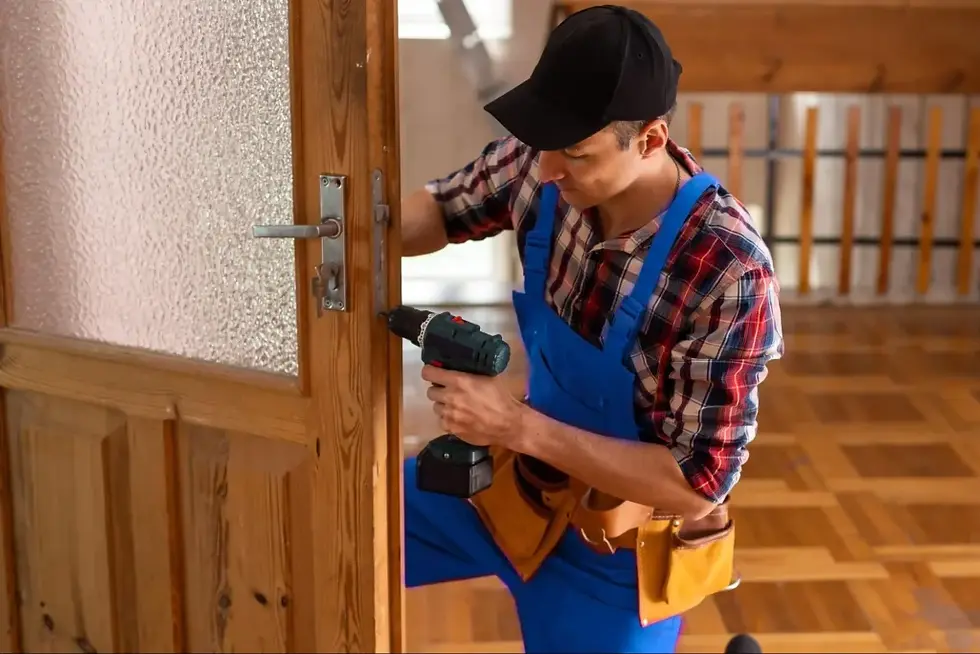Do I Need a License or Certification to Operate a Handyman Contractor Business?
- Nate Jones, CPCU, ARM, CLCS, AU

- Sep 18, 2025
- 4 min read
Starting a handyman contractor business is a great way to turn your skills into a profitable career. Whether you specialize in plumbing, painting, carpentry, or general home repairs, one of the first questions you’ll face is: Do I need a license or certification to operate legally?

At Wexford Insurance, we help handyman contractors protect their businesses with tailored insurance solutions. In this guide, we’ll break down what types of licenses or certifications may be required, what kind of work is typically restricted, and how to stay compliant while building a successful handyman business.
🧾 Do Handyman Contractors Need a License?
The answer depends on what kind of work you do, where you operate, and how you advertise your services.
✅ General Maintenance vs. Regulated Trades
Most states allow unlicensed handymen to perform minor repairs and maintenance—but once your work crosses into regulated trades or exceeds a certain dollar amount, you may need a license.
Common unlicensed handyman tasks include:
Installing shelves or cabinets
Painting interior or exterior surfaces
Replacing door hardware
Minor drywall repairs
Basic carpentry and flooring work
However, electrical, plumbing, HVAC, and structural work almost always require trade-specific licenses.
⚠️ Work That Typically Requires Certification or Licensing
Even if you’re skilled in these areas, offering the following services without proper credentials can result in fines or legal action:
Electrical work: Installing outlets, rewiring, or panel upgrades
Plumbing: Pipe installation, water heater replacement, or sewer line work
HVAC: Installing or servicing heating and cooling systems
Structural modifications: Removing load-bearing walls, foundation work
Work requiring permits: Any job that triggers a building permit often requires a licensed contractor.
🚫 Common Legal Pitfalls for Handyman Contractors
1. Project Value Limits
Many states cap the dollar amount of work you can perform without a license. These limits often include both labor and materials. For example:
California: $500
Nevada: $1,000
Utah: $3,000
Exceeding these limits—even unintentionally—can result in penalties.
2. Advertising Restrictions
You may not legally advertise services that imply you’re a licensed contractor if you’re not. This includes:
Using terms like “licensed,” “bonded,” or “certified”
Listing regulated services (e.g., plumbing, electrical) without proper credentials
Failing to disclose that you are not a licensed contractor
To stay compliant, clearly state your scope of work and avoid misleading language in ads or online listings.
3. Subcontracting Limitations
In most states, you cannot:
Act as a subcontractor for a licensed contractor
Hire subcontractors to complete parts of a job
Manage multi-trade projects without a general contractor license
This limits your ability to scale unless you pursue proper licensing.
What Certifications Are Required for Specialized Work?
If you plan to offer services in regulated trades, you’ll likely need formal certification or licensing from a state board or trade authority. Here’s a breakdown:
1. Plumbing Certification
Required for pipe installation, water heater replacement, sewer line work, and more
Typically involves classroom training, apprenticeship, and passing a state exam
Regulated by state plumbing boards or departments of labor
🔗 Learn more from the National Association of Plumbing-Heating-Cooling Contractors (PHCC)
2. Electrical Certification
Required for wiring, panel upgrades, outlet installation, and any work beyond fixture replacement
Most states require a journeyman or master electrician license
Includes classroom hours, field experience, and a licensing exam
🔗 Explore certification options via the National Electrical Contractors Association (NECA)
3. HVAC Certification
Required for installing or servicing heating, ventilation, and air conditioning systems
Often includes EPA Section 608 certification for refrigerant handling
Requires formal training and state-level licensing
🔗 Learn more from the Environmental Protection Agency (EPA)
4. Remodeling or Structural Work
May require a general contractor or residential remodeling license
Often includes proof of experience, insurance, and passing a business/law exam
Insurance: A Must-Have for Legal and Financial Protection
Even if your state doesn’t require a license, insurance is often mandatory—especially if you want to work with commercial clients or hire employees.
At Wexford Insurance, we help handyman contractors find coverage that meets legal requirements and protects their business.
Recommended Insurance Policies:
General Liability Insurance – Covers property damage and bodily injury
Commercial Auto Insurance – Protects your work vehicle
Commercial Property Insurance – Covers your office or workshop
Equipment Insurance – Protects your tools from theft or damage
Workers Compensation Insurance – Required if you hire employees
🧠 How to Stay Compliant Without a License
If you plan to operate without a contractor license, here are smart steps to stay legal:
Stick to small jobs under your state’s project value limit
Avoid regulated trades unless you’re certified
Be transparent in your advertising
Check local permit requirements before starting a job
Consult your local contractor board or building department for guidance
Final Thoughts
You don’t always need a license to operate a handyman contractor business—but you do need to understand your legal boundaries. By focusing on permitted services, staying under project value limits, and securing proper insurance, you can build a profitable and compliant business.
If you're starting or growing your handyman business and need insurance, contact Wexford Insurance. We specialize in handyman contractor insurance and can help you get the coverage you need to operate with confidence.




